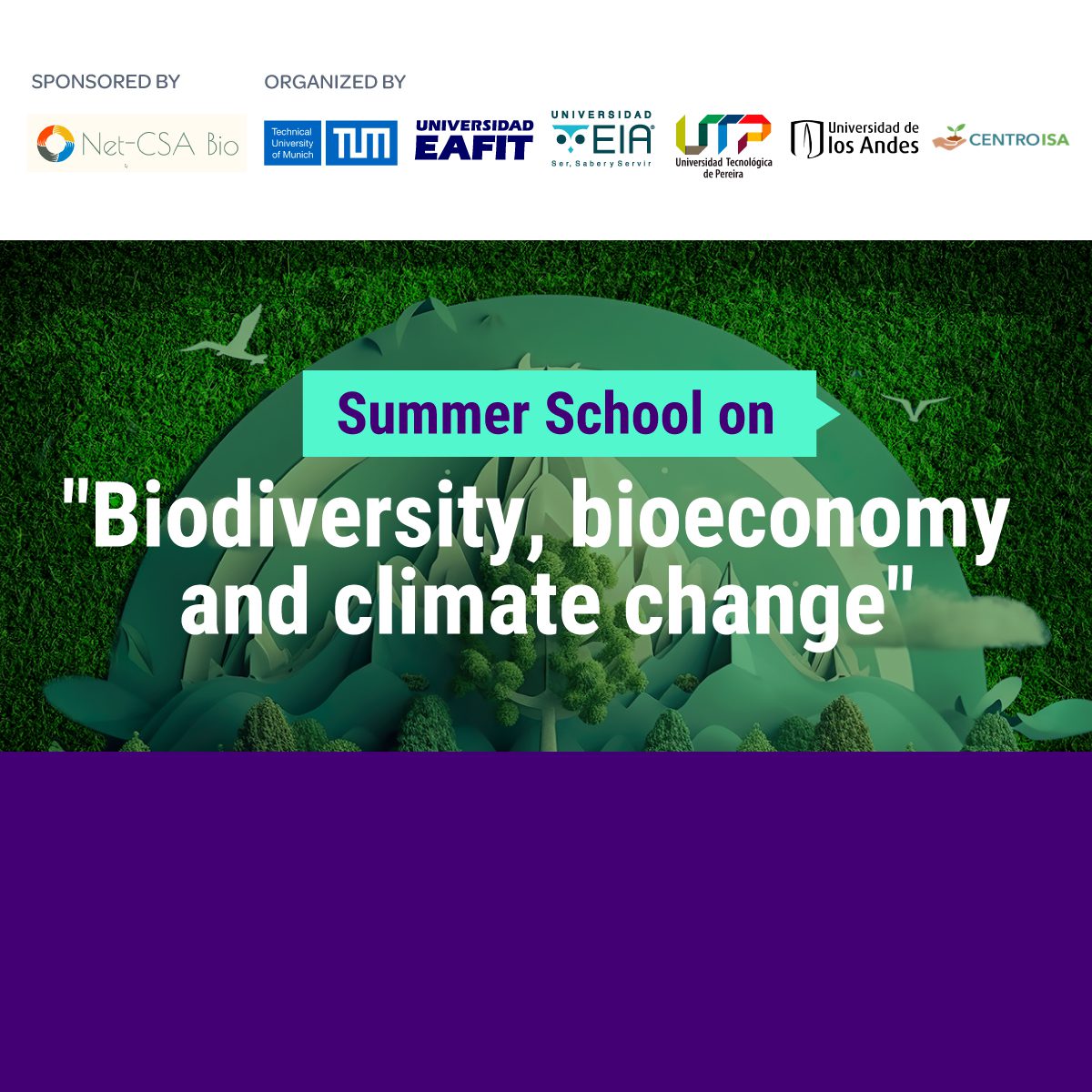
Summer School on
September 18th – 23rd, 2023
Morning sessions 8:00 – 12:00
Afternoon sessions 14:00 – 17:00

Morning sessions 8:00 – 12:00
Afternoon sessions 14:00 – 17:00
Código Postal: 055428 Tel: (604) 354 90 90. Tel-2: 3187754729 Fax: (574) 386 11 60
NIT: 890.983.722
Código Postal: 055420 Tel: (604) 354 90 90
Personería Jurídica 20120 del 12 noviembre de 1979 y Resolución 020061 del 9 de diciembre de 2015, emanadas del Ministerio de Educación Nacional
Alejandro Piedrahita nació en Medellín el 2 de marzo de 1973. Se graduó como administrador de negocios de la Universidad EAFIT. Posteriormente realizó una Maestría en Ciencias (M.Sc.) en desarrollo económico en London School of Economics y un Programa en Alta Dirección Empresarial (PADE) de la Universidad de La Sabana. Adicionalmente, participó en el programa de gerencia general (General Management Program) de Harvard Business School.
Tiene más de 20 años de experiencia en estructuración y ejecución de proyectos en banca de inversión en temas de mercado capitales, finanzas corporativas, financiación (créditos sindicados y project finance), fusiones, adquisiciones y derivados.
Desde junio de 2015, ocupa el cargo de Vicepresidente de Estrategia y Finanzas Corporativas en Grupo Argos. Antes de ocupar este cargo, trabajó como Vicepresidente de Estructuración Mercado de Capitales en la Banca de Inversión Bancolombia S.A. desde el 2008, antes se desempeñó el puesto de Gerente de Estructuración de Productos Derivados en Bancolombia S.A. y también trabajó como Director de Investigaciones Económicas en Corfinsura S.A. y como Director de Proyectos Especiales en Susalud S.A.
Actualmente es miembro principal de las juntas directivas de: Cementos Argos, Celsia, Odinsa, comité de inversiones de Pactia y Aceros MAPA S.A., Corporación Surgir, miembro de Iluma (Premex S.A.S) y del Consejo Superior de la Universidad EIA.
Ha estado vinculado con la academia y ha sido profesor de cátedra en pregrado y postgrado en varias universidades como: EAFIT, EIA, Universidad Nacional, Universidad Javeriana y Universidad de Medellín.
Ningún miembro del Comité Directivo tiene la calidad de Persona Expuesta Políticamente de acuerdo con la definición del Decreto 1674 de 2016.
Ingeniero Civil en la Universidad EIA y realizó una especialización con énfasis en la Industria del Cemento en Inglaterra. Participó en el CEO’s Management Program de Kellogg School of Management y en el programa de Supply Chain Strategies de Stanford University. Adicionalmente, es egresado del programa de Alto Gobierno de la Escuela de Gobierno de la Universidad de los Andes.
Desde el 1 de abril de 2016, se desempeña como presidente de Grupo Argos, holding de infraestructura en el continente americano, líder en el negocio de cementos a través de Cementos Argos, con una plataforma única de inversión en concesiones viales y aeroportuarias administradas por Odinsa y un portafolio diferenciado e innovador tanto en energías convencionales como renovables gestionado por Celsia.
Antes de desempeñar su rol como presidente de Grupo Argos, desarrolló una carrera destacada como presidente de Cementos Argos, compañía líder en el negocio de Cemento en Colombia, con presencia en 15 países y actualmente el segundo productor de concreto de los Estados Unidos.
Este líder empresarial, que empezó su carrera en Argos en 1986 como practicante, desempeñó diversos cargos en Cementos Argos en el pasado, incluyendo la Vicepresidencia de Logística de Argos, la Gerencia General de Cementos del Nare, la Presidencia de Cementos Paz del Río y la Vicepresidencia Regional Caribe, con responsabilidades sobre las operaciones de Cementos Argos en Panamá, Haití, República Dominicana, Suriname y territorios insulares, así como el comercio internacional de la compañía.
Actualmente es miembro principal de las juntas directivas de Cementos Argos, Celsia, Odinsa, Fundación Grupo Argos, la Asociación Nacional de Empresarios – ANDI, Proantioquia, y el Consejo Superior de la Universidad EIA.